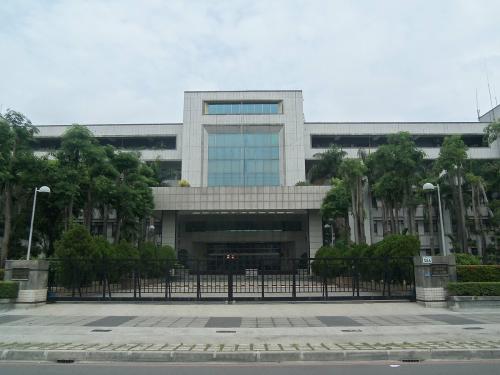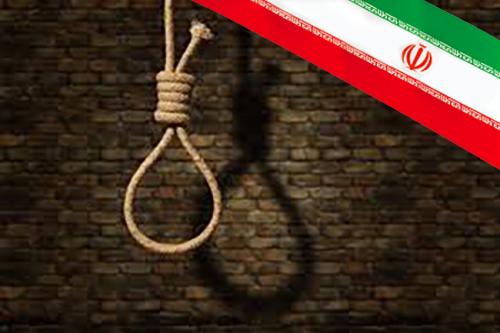government: constitutional monarchy
state of civil and political rights: Partly free
constitution: signed by King on 24 August 2007
legal system: based on civil law system, with influences of common law
legislative system: bicameral National Assembly (Rathasapha) consists of the Senate (Wuthisapha) and the House of Representatives (Sapha Phuthaen Ratsadon)
judicial system: Supreme Court (Sandika), judges appointed by the monarch
religion: Buddhist 94.6%, Muslim 4.6%, Christian 0.7%, other 0.1%
death row: 687 (as of March 21, 2013)
year of last executions: 0-0-0
death sentences: 1
executions: 0
international treaties on human rights and the death penalty:International Covenant on Civil and Political Rights (made reservation to the interpretation of Art. 6 which prohibits the death penalty for minors)
Convention on the Rights of the Child
Convention Against Torture and Other Cruel, Inhuman or Degrading Treatment or Punishment
Statute of the International Criminal Court (which excludes the death penalty) (only signed)
situation:
Under the Penal Code alone, the death sentence can be applied to 35 crimes, ranging from offences against the King, treason, murder, rape in which the victim is killed and arson, to robbery which results in death. Exploitation of position by a legislative official for his/her own benefit is also subjected to the punishment, although in practice no one has ever faced it.
The death penalty applies in Thailand also to heroin or amphetamine drug trafficking and especially when a prisoner is found guilty after pleading not guilty at the start of the trial. A guilty plea allows judicial leniency - 25 years to life in jail instead of execution for heroin trafficking and export.
According to the Thai Penal Code, prisoners who receive the death sentence can appeal for a royal pardon. The appeal must be made within 60 days of the verdict. Each prisoner can appeal only once.
If the pardon is granted, execution will be commuted to life imprisonment.
It is never known in advance when a death warrant is to be issued, and executions are performed only once in a while. Usually a death warrant arrives in the morning and the execution takes place in the evening of the same day. Before the day of execution, the police will take fingerprints from the prisoner to compare them to those in the prisoner's file to ensure that the wrong person is not executed.
If the prisoner is a Buddhist, monks will be invited to give a sermon, followed by the reading of the death sentence by the prison director.
A pregnant convict may not be executed until the baby is born. Insane prisoners are also spared execution, at least until they recover. If their treatment takes more than one year, the sentence is commuted to life.
On May 9, 2003 Thailand's Senate approved the bill banning capital punishment and life imprisonment for convicts younger than 18, a measure already approved by the lower chamber in November 2002. The maximum penalty for juveniles was set at 50 years in jail.
In a previous debate on this bill at the Senate, on March 17, 2003 several senators called for the complete abolition of the death penalty and for lesser jail terms for under 18-year-olds saying these people would be unable to live a normal life after 50 years in prison.
There are credible reports of police ill-treating and torturing suspects in pre-trial detention to extract confessions. Confessions are regularly used as evidence in capital trials, and defendants have maintained in court that police forced them to confess.
Thailand resumed executions in 1995 after a de facto eight-year suspension. According to the Department of Corrections, some 319 prisoners - 316 men and three women - have been executed since 1935.
On October 19, 2003, after 68 years and 319 lives (316 men and three women) taken by the firing squad, Thailand marked the introduction of lethal injection as a means of execution by a solemn ceremony at the Bang Kwang jail – notoriously known as the ‘Bangkok Hilton’. The firing squad had replaced decapitation as the method of execution in 1935.
On December 12, 2003, Thailand carried out its first executions by lethal injection, putting to death three people convicted of drug trafficking and one of murder at the Bang Kwang jail. Three drugs were used in the executions - the first sedated the convict, the second relaxed the muscles and the third stopped the heart.
Thailand resumed executions in 1995 after a de facto eight-year suspension. Although Thailand did not perform any judicial executions between 2004 and 2008, the practice resumed in August 2009, when two men convicted of drug trafficking were executed by lethal injection in the prison of Bang Khwang in Bangkok.
Thailand has executed 325 convicts, including 3 women, since 1934, when it began using firing squads instead of beheadings, according to government figures.
In 2012, for the third consecutive year, no executions were carried out in Thailand.
In 2011, were handed down 40 death sentences, including nine for drug-related offences and 106 in 2012, according to Amnesty International.
According to figures of the Thailand Union for Civil Liberty, as of 21 March 2013, there were 687 people under sentence of death, including 48 for whom all legal process was completed. Of the 687 persons under death sentence, among them 69 women, 313 had been convicted of drug-related offences and 374 in homicide related cases.
On 11 August 2012, 58 prisoners condemned to death had their sentences commuted by a Royal Pardon on occasion of the birthdays of Her Majesty the Queen, and the Crown Prince. In June, there were 58 prisoners on death row for whom all legal process was completed. Following the pardon this number was reduced to zero. In December 2011, all women condemned to death had been granted by another Royal Pardon on the occasion of the King’s birthday.
On 5 December 2011, all women condemned to death had their sentences commuted by Royal Pardon on the occasion of the King’s birthday. On 30 March 2011, there were 83 women on death row in Thailand.
The government has declared its intention to abolish the death penalty, as announced in the human rights plan for the years 2009-2013.
On 20 October 2009, the cabinet approved and proclaimed the Second National Human Rights Plan, which was circulated to all relevant government offices for adoption in a human rights program to be implemented by ministries, departments and in the development planning of local authorities.
The most important measure relates to the death penalty. Parliament will discuss the abolition of the death penalty and its replacement with life imprisonment.
Many members of the Thai administration are aware of the worldwide rejection of the death penalty and favour abolition. But the debate will not be easy. It is likely that there will be opposition to change from at least two important ministries. The Interior Ministry recently announced an initiative, relying on a mass signature campaign, to halve the quantity of drugs which would lead to a penalty of death, thereby almost doubling the numbers condemned.
The Justice Ministry has suggested proceeding with executions in cases where a royal pardon has not been granted within 60 days. Fortunately, the Corrections Department has refused to carry out executions where the process of royal pardon has not been explicitly completed.
On 6 March 2012, in its response to the recommendations received on 5 October 2011 under the Universal Periodic Review (UPR) of the UN Human Rights Council, Thailand rejected recommendations to introduce a moratorium on executions and to abolish the death penalty. “Thailand is embarking on a process of studying the possibility of abolishing the death penalty, in consultation with the public and relevant stakeholders,” said the Government. “However, pending the completion of this consultation process, Thailand is unable to accept recommendations to review or amend the law in regard to capital punishment, place a moratorium on or abolish the death penalty.”
On 22 March 2012, Deputy Prime Minister Chalerm Ubumrung said he would propose an amendment to the criminal procedure code so that drug convicts who appeal to the Central Appeal Court but have their death sentences upheld by the Court are executed within 15 days of the Court’s decision.
On December 20, 2012, Thailand abstained on the Resolution on a Moratorium on the Use of the Death Penalty at the UN General Assembly meanwhile voted against on December 18, 2008 and December 21, 2010.











